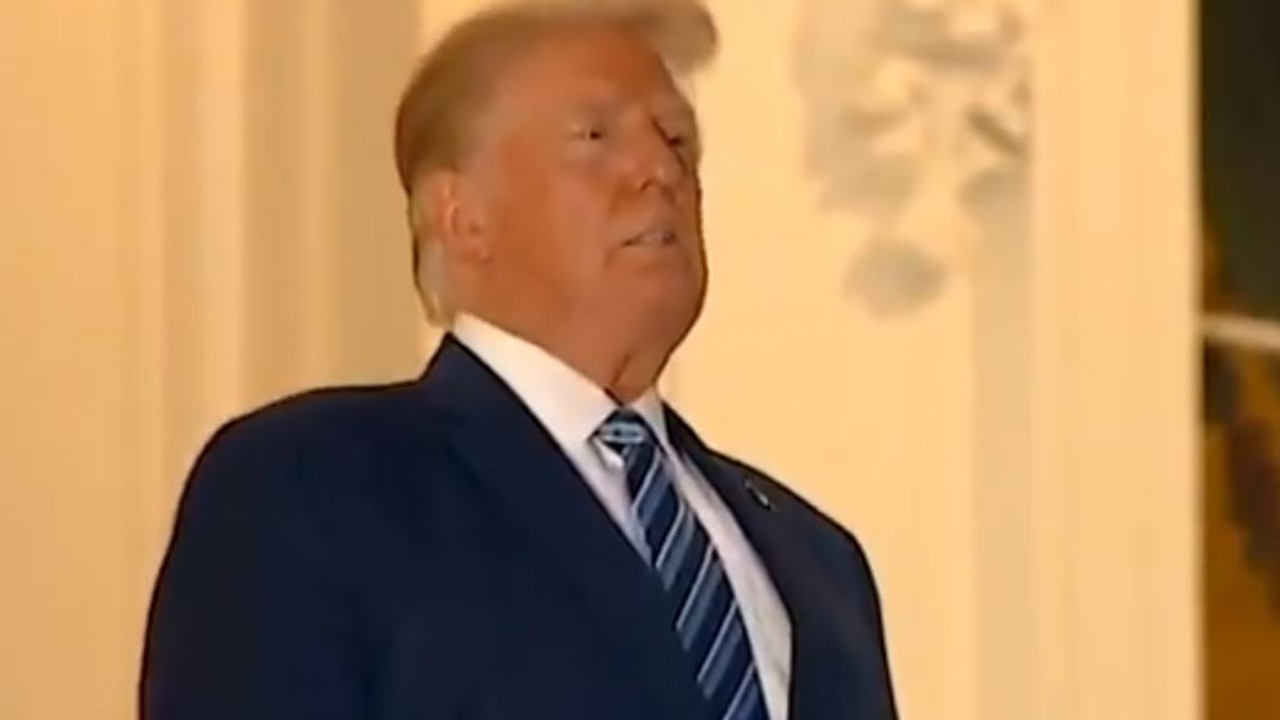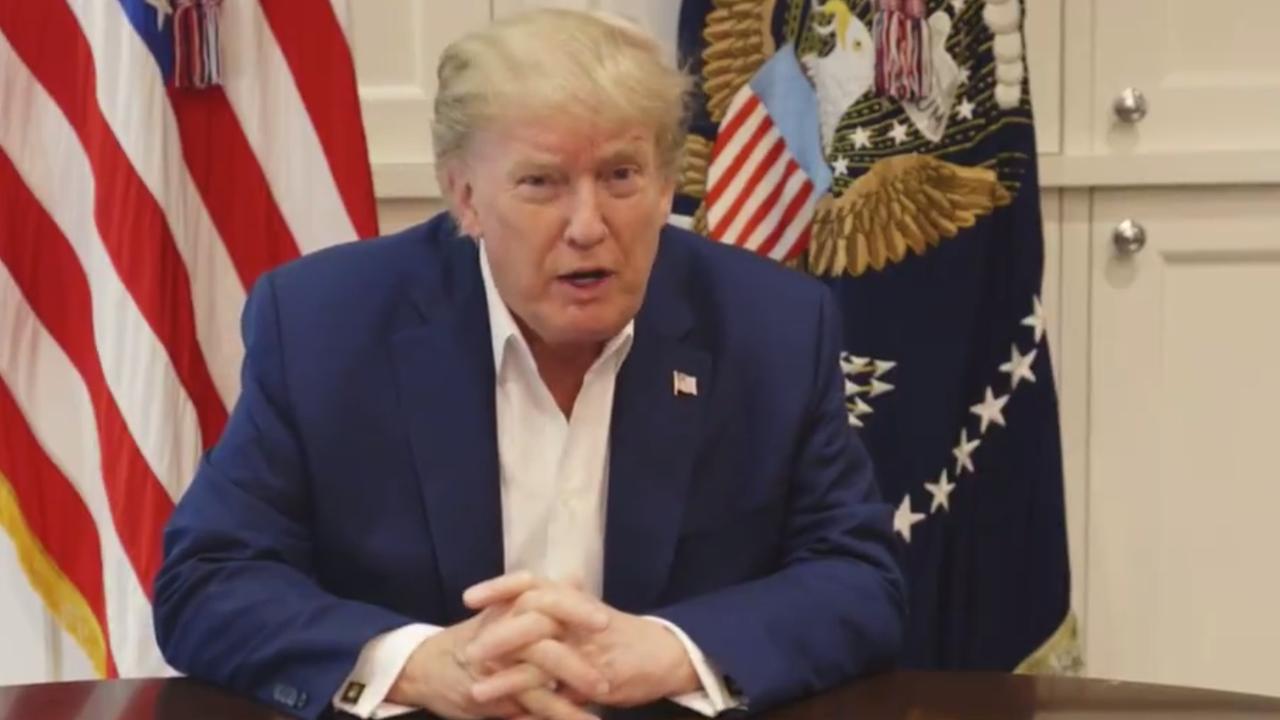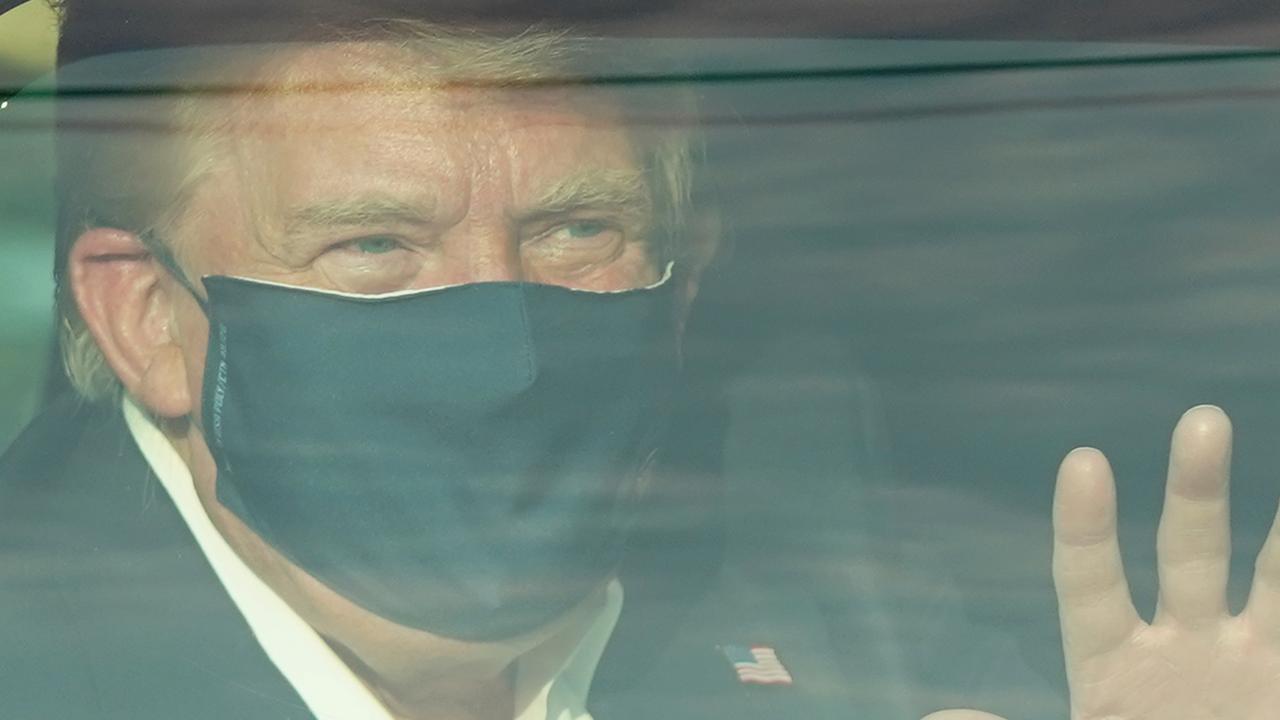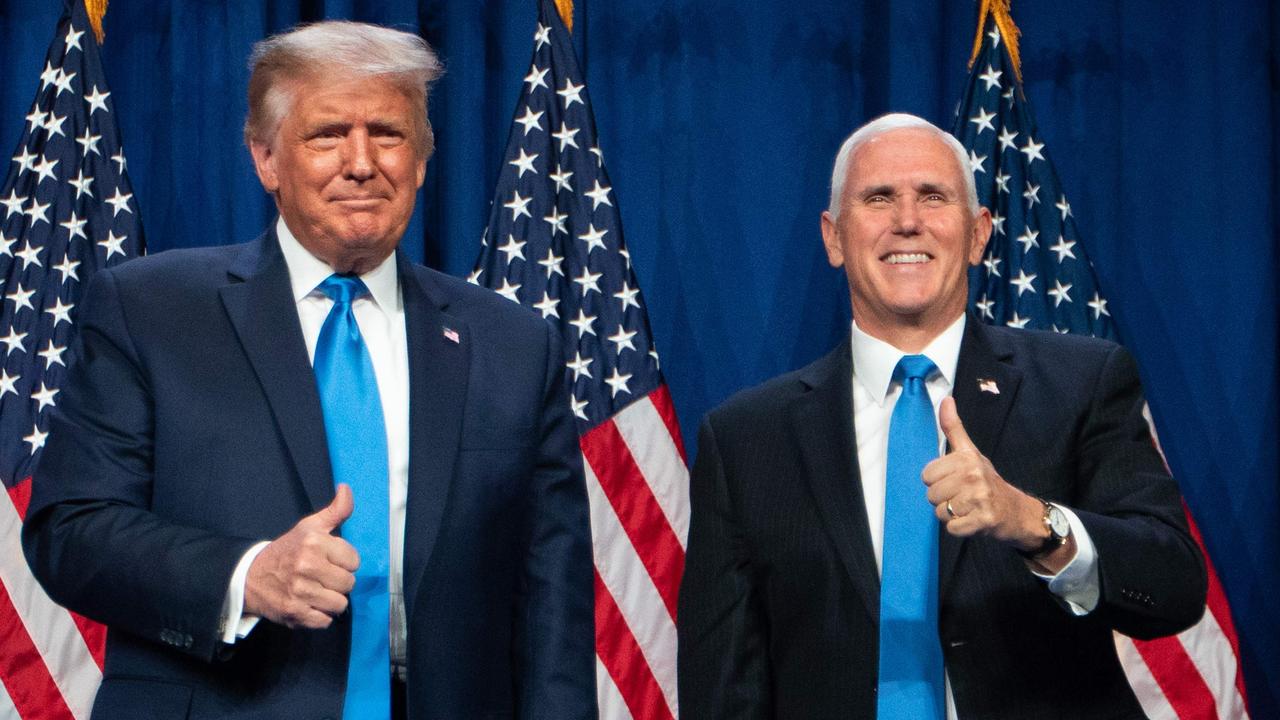US election: Crisis looms if Trump refuses to give up power
Donald Trump is upbeat, but not yet “out of the woods”. If his condition takes a turn for the worse, the nation could be thrown into confusion.
It’s not just uncertainty. The US is on the brink of another constitutional crisis
The state of the union is uncertain. Washington has a problem. We know the Vice President is supposed to take over when the President can no longer do the job. But not how.
This means there is a potential constitutional crisis ahead in which the President may be unable or unwilling to give up power.
Reports on President Donald Trump’s health are confused.
Trump is upbeat. He’s back at the White House after being hospitalised with COVID-19. But video of him standing on the Truman Balcony shortly after his return appears to show him struggling to breathe.
The President “may not entirely be out of the woods yet,” his physician Dr Sean Conley admitted yesterday.
RELATED: Doomsday planes mobilise in Washington


So how does a president - having being administered oxygen on top of a raft of experimental and exotic COVID19 treatments - run the country?
“Because people are so invested in this year’s election, there is much interest in what happens if Trump does not recover quickly,” United States analysts Daniel Cooper and Brendon O’Connor write in The Conversation.
“There is uncertainty on a number of fronts.”
There’s the election campaign, with only weeks left to run.
There’s the chain of command when it comes to the US nuclear arsenal.
There’s the question of who takes over the job, when, and how.
“The prospect that Trump could be or become very ill raises the question of how the country can constitutionally transfer power,” notes Rutgers University public affairs analyst Dr Stephanie Newbold.
“There is a potential constitutional crisis ahead in which the President may be unable or unwilling to give up power, even if he is clearly too ill to do his job.”
ALERT, NOT ALARMED
The Pentagon says the situation has been normal.
The trusted aide carrying the “nuclear football” containing the codes needed to launch the US doomsday arsenal has remained a few steps from the President’s side the entire time.
“There’s been no change to DoD (Department of Defence) alert levels,” Pentagon spokesman Jonathan Hoffman said Saturday.
“The US military stands ready to defend our country and interests. There’s no change to the readiness or capability of our armed forces. Our national command and control structure is in no way affected by this announcement.”
But that national command and control structure is totally focused on Mr Trump.
The White House insists Mr Trump is suffering only “mild” symptoms. It states he will continue to carry out his duties “without disruption”.
RELATED: ‘They may die now’: Doctor slams Donald Trump

It’s a confused scenario that has analysts worried about the state of the vital chain of command.
The effectiveness of the US nuclear deterrent could break down.
US strategic opponents could take advantage of a Pentagon suffering a severed head.
And all this is made possible through widespread fear that Mr Trump will willingly mislead both his government and the public about the true nature of his condition.
It’s not the first time a US president has clung to power despite severe illness.
And that’s despite constitutional provisions supposedly preventing this from happening.
‘SEIZING POWER’
“The national security communications infrastructure is designed to be both static and portable,” former Pentagon and CIA official Mick Mulroy told US ABC News.
“Unless symptoms are severe enough for the commander and chief to be incapacitated, it would not require a change of the chain of command.”
The key word is “incapacitated”.
What does it mean? Who makes the call?
The answer is supposed to be within the 25th Amendment to the United States Constitution.
But there’s a problem.
“Its lack of specificity about a situation in which the President is unable to determine himself whether he can carry out his duties,” Dr Newbold says.
RELATED: Who China wants to win the US election

The Vice President must make the call. But it’s entirely on his head. So any move will almost inevitably lead to accusations of ‘seizing power’.
“There is no precedent for this type of situation nor is there precise legal language that expressly outlines what the procedural processes should be if the President cannot determine his own ability to lead the nation. This is the constitutional crisis that may lay ahead,” warns Dr Newbold.
Former president George W. Bush invoked the amendment to put former vice president Dick Cheny in charge while undergoing a colonoscopy procedure. But when former president Ronald Reagan was shot in 1981, former vice president George H.W. Bush refused to make the call as his boss lay close to death for more than a week.
SUPERSPREADER FALLOUT
The White House is not a big place. Few staff have private offices. Officials are constantly coming, going, mingling … all in close proximity.
“The decision to ignore CDC guidelines in the West Wing, at official government functions and at campaign events, coupled with the President’s disparagement of public health measures, have placed the country into a potential leadership crisis where it is not clear who should be in charge,” Dr Newbold says.
Everything now depends on the health of the President.
— Donald J. Trump (@realDonaldTrump) October 4, 2020
“Even if Trump does not die, what happens if he has a lengthy illness? What happens if Pence, who has initially tested negative, also contracts the virus in the coming days?” questioned Cooper and O’Connor.
“If neither of these men are fit to run for the looming election, now less than one month away, how will the process play itself out? If Trump and Pence were both unable to campaign as a result of contracting the virus, this would truly be unprecedented.”
And this would explode into an election campaign already mired in controversy, with doubt already having being thrown on the validity of the November 3 vote.
“Given today’s highly polarised American electorate and the spectre of foreign interference with the upcoming election, there exists the potential for any leadership crisis in Washington to be exploited,” warns York University disaster and emergency management researcher Jack Rozdilsky.
“Any personal health crisis related to the President and many of his senior aides is a situation of national security concern. Any interruption to White House operations as a result of the President’s illness is fraught with danger.”
Jamie Seidel is a freelance writer | @JamieSeidel




